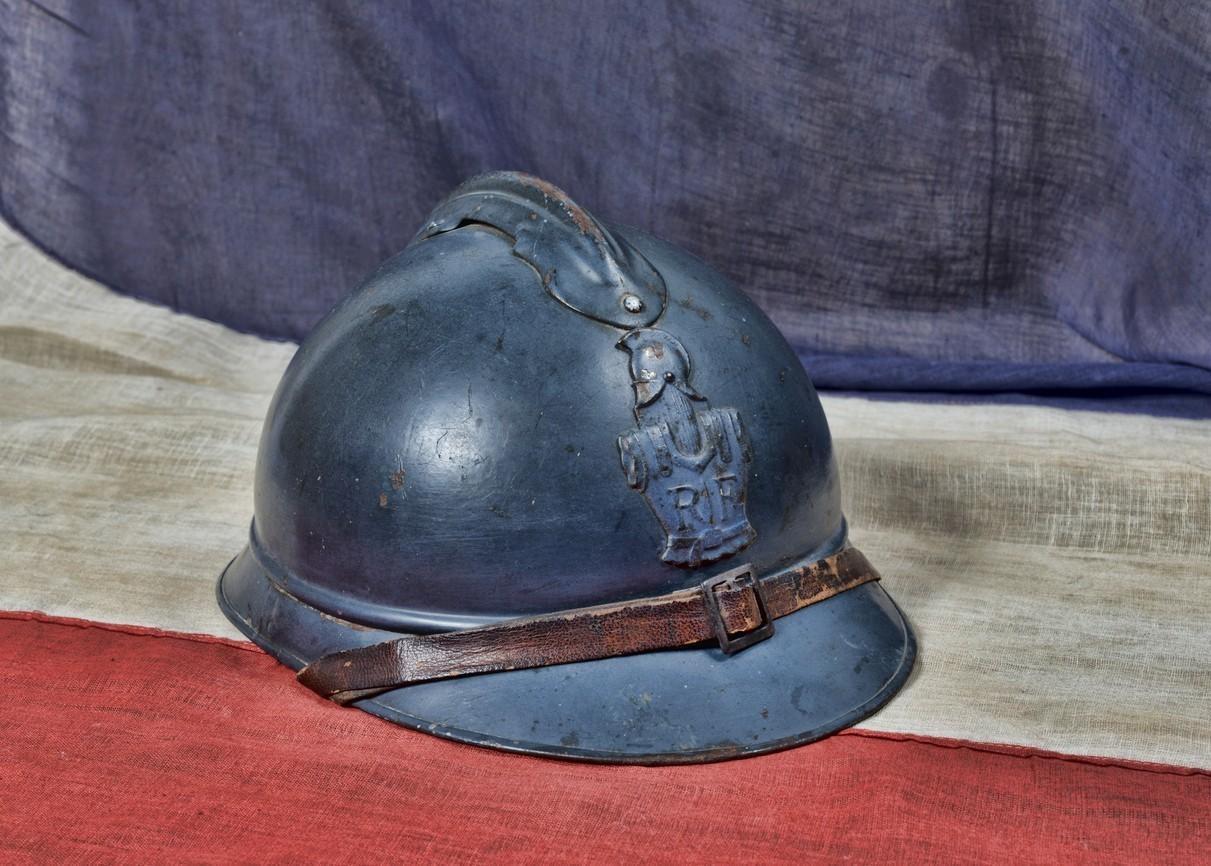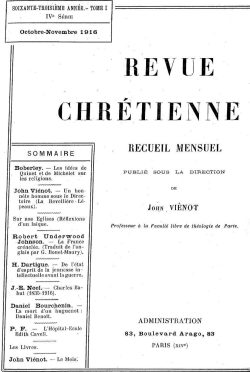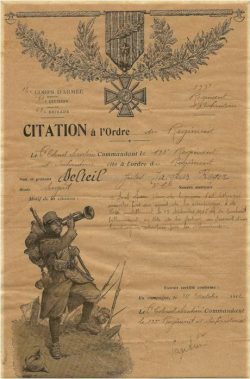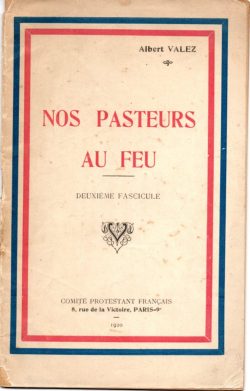Commitments
of Protestant magazinesduring the Great War
In 1914, the declaration of war and the general mobilization disorganized the French Protestant press. Ensuring normal publishing conditions became difficult. Indeed the press was confronted by the lack of collaborators, gone to war, and to hardships caused by the conflict. First the lack of documents compromised the preparation of articles, second the censorship did not allow editors much flexibility. Thus the protestant press had to speed up its editing agenda. Editions were more scarce with sometimes fewer pages and articles than there used to be. Editors struggled to offer contents about a war that lasted that everybody believed would be shorter.
Defending French Protestants
In the first few years the war gave rise to controversies against the French Protestants. Some Catholics accused them of lacking in patriotism and being overly indulgent towards the enemy, Protestant Germany. The support given by Protestant Alsatians to Germany only increased the suspicion.
The Huguenot press reacted at different levels. Some authors directly answered Catholic polemicists, notably by attacking Pope Benedict XV on his attitude towards German Catholicism. Otherwise the Protestant press extended its obituaries, namely ‘Our pastors on the front’ in The Christian Magazine or ‘Our bereavements’ in the Bulletin of the French Protestantism History Society in order not only to pay homage to the Protestants who had died at the front, were injured or decorated, but also to show their sacrifice for France. Was not the first soldier to be killed on 2 August, 1915, a Protestant corporal Jules-André Peugeot?
In spite of these accusations, the French Protestant press was patriotic when the war broke out, and showed its support to the leader of the country while minimizing the difficulties when appropriate. The number of obituaries decreased throughout the conflict as the number of deaths increased dramatically and could harm the morale of the readers. As the war lasted, doubts and discussions about the patriotism of French Huguenots became less frequent, to be replaced by testimonies of an ecumenical kind, notably when the American army, a Protestant power, came into the conflict in 1917.
Criticising the German enemy
The main difficulty for the Protestant press was to clearly show the difference between French and German Protestants. It wasn’t concerned with criticising the German fathers of Lutheranism or of Protestantism, but the Germans themselves. That is why newspapers relinquished the idea of raising church issues, and preferred to find other faults with the Germans. They were accused of ‘madness’, a madness explained in French newspapers by cultural and political differences. According to them, Imperialism and the State Church were the main reasons for German submissiveness. In other words, the Germans were accused of blindly following an authoritarian and blood-thirsty regime. To illustrate their point, French newspapers did not hesitate to rely on the foreign press, especially in neutral countries like Switzerland; using only those foreign articles that backed up their own charges.
Taking part in the war effort
The press was mobilised, as the war took a prominent place both in the content and form of the press. Protestant papers tried to reinforce the Protestant commitment. They called upon several arguments, all pertaining to the same guiding principle that the only means to achieve peace was to beat Germany. There was, generally speaking, no theological talk on the value or the aims of the conflict; though the papers mentioned that murdering Germans could be justified by a divine will for world peace, a will materialised through the American intervention.
The Protestants fought on two fronts with their media outlets. The first was the interior fight to prove their patriotism; the second was the conviction that the world war that was to end in world peace. But some of the newspapers were irreversibly weakened by the huge efforts they made to ensure publishing throughout the war.
Progress in the tour
Bibliography
- Documents
- Articles
Associated tours
-

Protestants during World War I
Though the Protestant community represented a minority of the French population, i.e. only 1.6% in 1904 since Alsace-Moselle was lost, it played an important role thanks to its commitments and...



